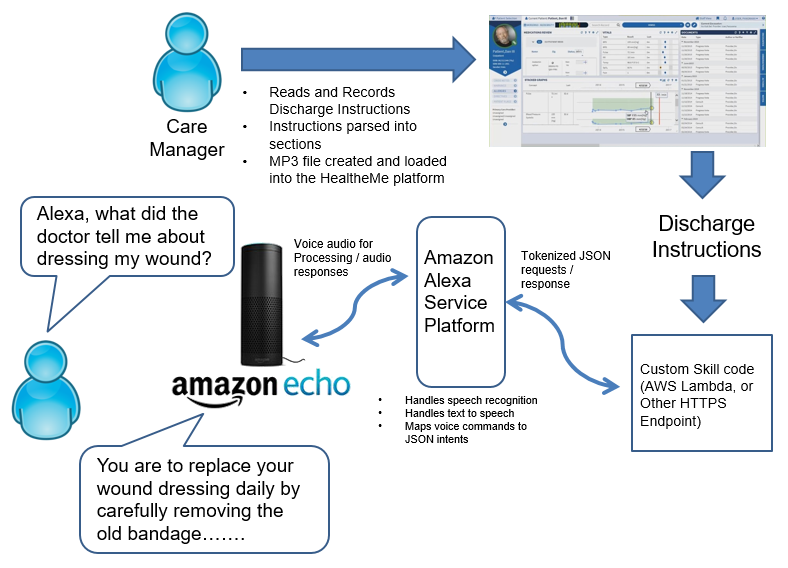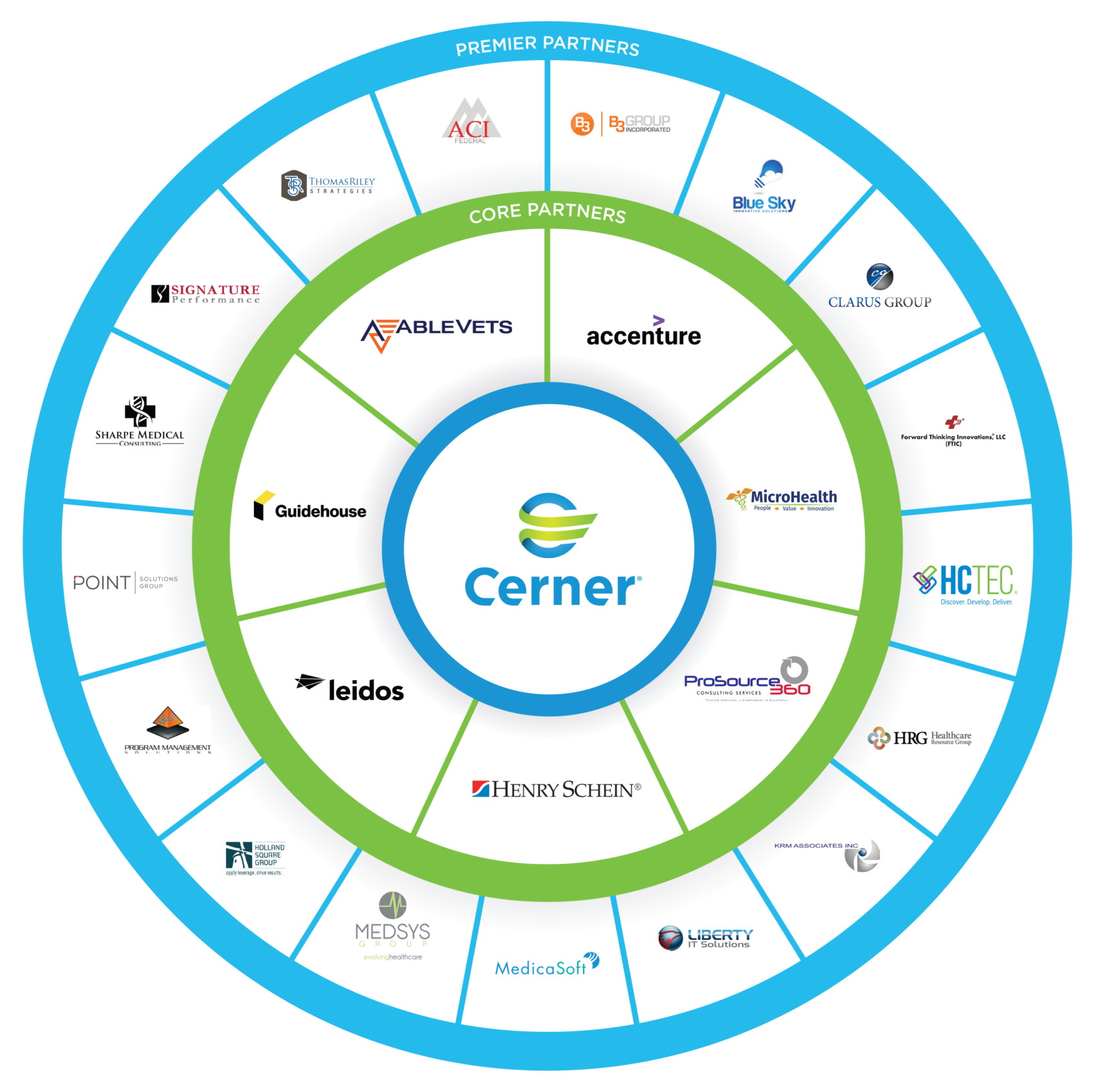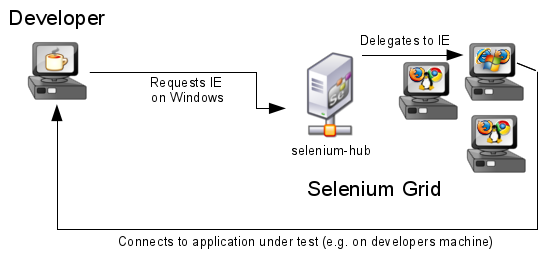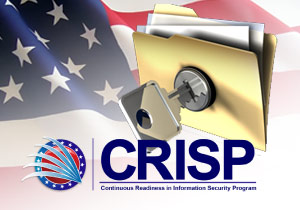Project Description
With more than 25 years of healthcare data systems experience, KRM has worked on healthcare initiatives for organizations such as the Department of Veterans Affairs, West Virginia Department of Health and Human Resources, and Shepherd University. From working on several patient engagement projects, including My HealtheVet, creating a Personal Health Record for CMS Medicaid Transformation in West Virginia, a Care Coordination application for the Children’s Health Insurance Program (CHIP), and building HealtheMe® our own Care Management Platform, we have been inspired to do a number of internal R & D projects to expand our offerings to our clientele. One of these projects is VICA, the Voice Initiated Care Assistant, inspired by the Amazon Echo (Alexa) platform and its potential in healthcare. An illustration of the interest in using this technology for healthcare is the Alexa Diabetes Challenge: http://www.alexadiabeteschallenge.com/.
Because voice communication is natural for people, especially those who may be intimidated by computers, we would like to introduce the patients to the Echo, a customizable, programmable platform that will respond to their voice. It can answer questions, collect information that can be sent to the patient’s care team, and remind patients to take medications or perform other activities.
Proofs of Concept VICA Skills
KRM has built several Amazon Echo “skills” as proofs-of-concept for VICA.
Drug Side Effects and Information Skill
This custom skill makes a RESTful API call to the Iodine Drug Information website http://www.iodine.com/. It could be modified to call any drug information site, if an API is available.
For a recorded demonstration of this VICA skill, click this YouTube link: https://youtu.be/NFFHLb6Osuw
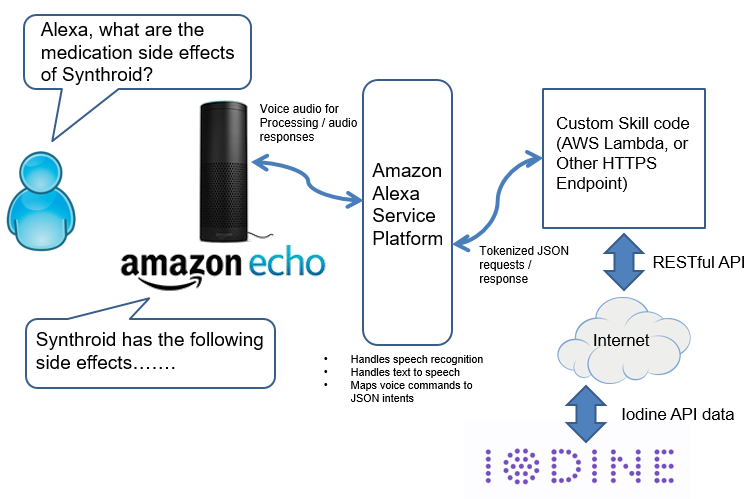
Review Medication Schedules Skill
Non-compliance with medication orders, especially for patients with multiple conditions, is sometimes caused by forgetting what needs to be taken, or how often. This custom skill allows the patient or the home care giver to hear their medication schedules, which are loaded into a DynamoDB table, which can be done manually or by querying the patient’s health record. Once the patient’s dosage and frequency schedules are input, asking Alexa what medications are supposed to be taken, whether the entire list or just one medication or time of day, will result in a clear answer to the query. The process is illustrated below.
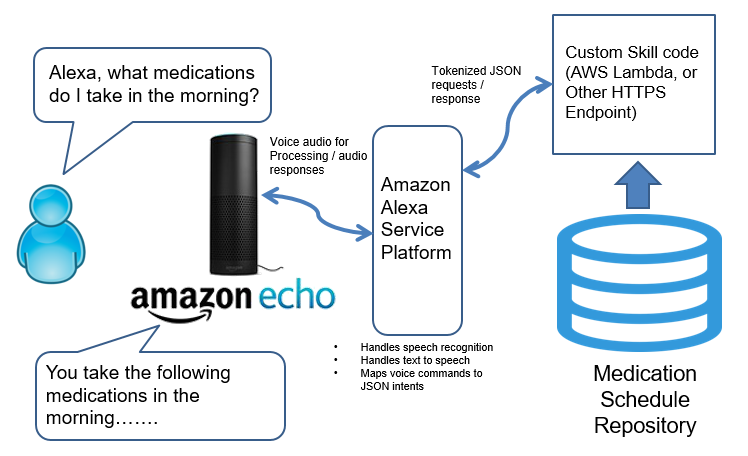
Capture Clinical Data / Survey Skill
The patient survey skill allows for the Amazon Echo platform to gather any information from the patient using speech to text and load those discreet data points back into a DynamoDB which is then accessed to the HealtheMe® Care Management Platform. The data can be interfaced with any other platform capable of using and API, if desired. See the illustration below for a visual representation.
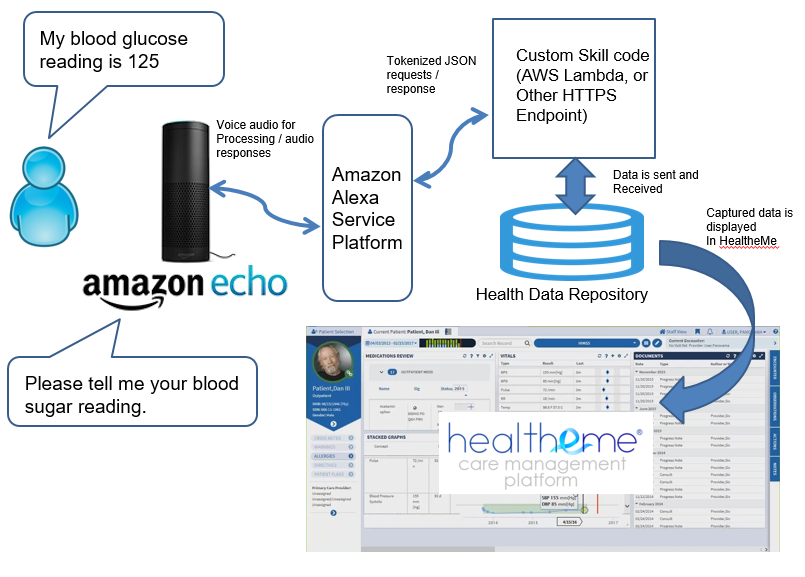
Capture Clinical Data Using VICA
The display for clinical data captured by VICA is a custom applet inside the HealtheMe® application. The survey can be modified to ask the patient anything, providing an excellent way of allowing care managers to collect feedback on “soft” data points not readily accessible with other digital health products. An example would be asking the patient, “How do you feel, on a scale of 1 to 5?” or asking, “Are you sleeping with pillows propping up your back?” (A congestive heart failure patient will progressively begin sleeping with more pillows and awake more frequently (I.E. http://www.jems.com/articles/2008/07/stages-chf.html).
See the screen shot of the HealtheMe® Summary Screen showing the data captured by the Amazon Echo skill, below.
For a recording of the skill in use, click the following link for a YouTube video: https://youtu.be/wyNGOB0YAkw.
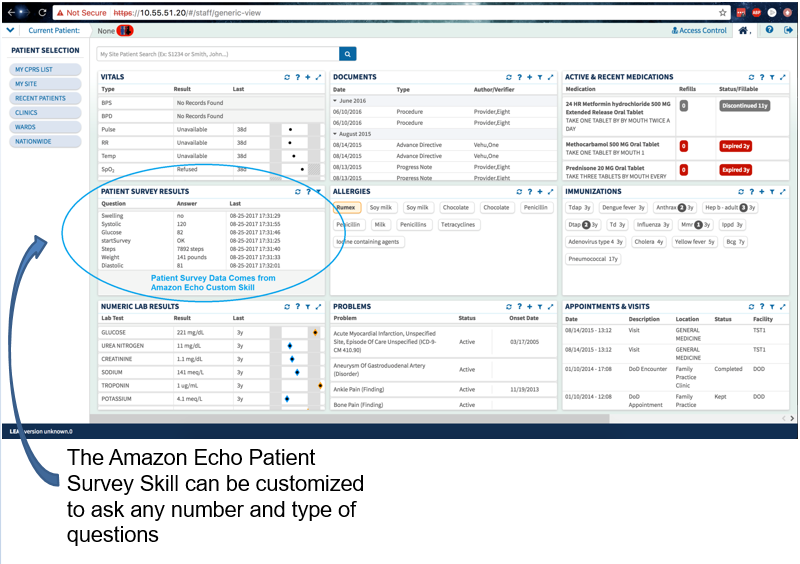
Future VICA Additions
Potential VICA Skill to Read Discharge Instructions
This skill would be utilized to assist the patient after discharge in understanding their instructions. Because patient understanding of ED discharge instructions is generally poor due to emotional stress and illness, having the ability to hear the instructions read aloud more than once while they are calmer and more alert may improve compliance.
(http://www.the-hospitalist.org/hospitalist/article/122844/patient-understanding-ed-discharge-instructions-poor, http://www.nso.com/risk-education/individuals/articles/Reducing-readmissions-through-discharge-communication.)
